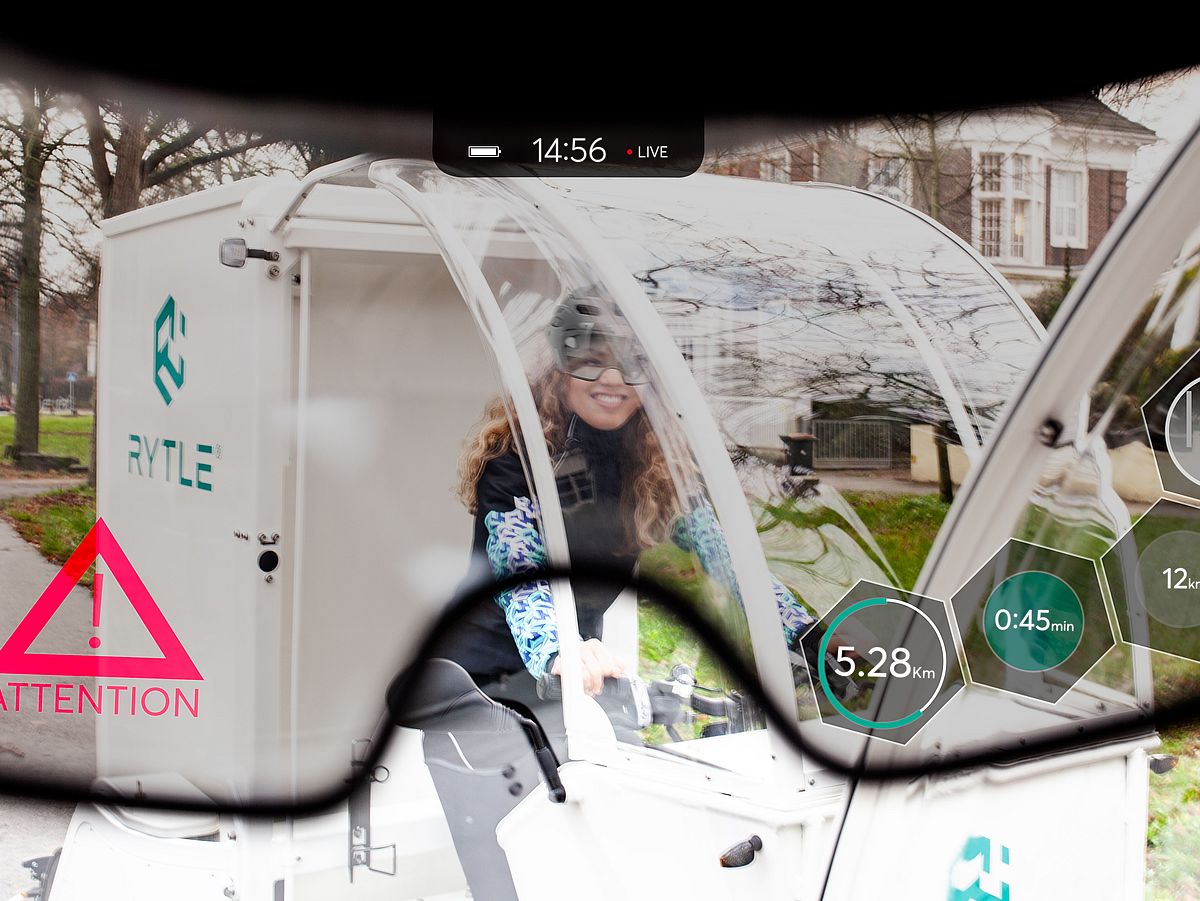SmartHelm

The aim of the SmartHelm project is to develop an attention-sensitive bicycle helmet with augmented reality (AR) glasses and user-friendly voice input for attention-based process optimization in city logistics. The current attention load is detected on the basis of eye-tracking technology integrated into the helmet and an EEG system (dry electrodes). The generated data is processed in real time using machine learning methods. The system is designed to detect the current attention load of the driver and to provide the right amount of information in the driver's language in order to support the driver in an optimal way.
The CSL is responsible for the analysis and modelling of the attention and stress data based on the collected biodata, as well as for the necessary optimisation of speech processing and natural language interaction in several selectable languages.
The sub-project pursues a new approach to the collection and analysis of attention-related bio- physiological data. While wireless EEG has already been widely used in the laboratory, a robust application in SmartHelm requires integration with additional data (e.g. eye movements). Neuro-physiological markers for attention have already been investigated in our own laboratory studies. We were also able to combine different types of biodata. However, the investigation and evaluation in a concrete application is still missing. The CSL is therefore particularly involved in the transition of system evaluation between laboratory research and field research. In view of the scientific "cutting edge" research, the sub-project deals with the question on robust attention classification, using relatively few but rich biodata compared to big data approaches. Expanding upon its own preliminary work, the CSL will investigate "Long Short Term Memory" networks as an alternative to static linear classifiers.
A second central topic addresses the challenges of multilingual speech recognition with respect to the cross-language and cross-domain adaptation of the corresponding models with the goal of robustness in acoustic environments (e.g. against noise), an extension of the fields of application, as well as faster adaptation and personalization. To solve this task, the CSL will leverage knowledge and language corpora (GlobalPhone) from similar previous projects.
The CSL will take the lead in the scientific modelling and dissemination of the key attention capturing and speech processing components of the SmartHelm project
Funding agency: BMVI Modernitätsfonds (mFund); Consortium leader: Rytle GmbH, Bremen; FKZ CSL: 19F2105F
Contact person at CSL: Dr. Dennis Küster
Further information (in German):

